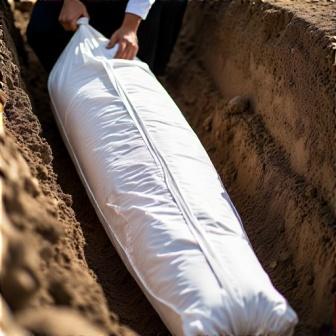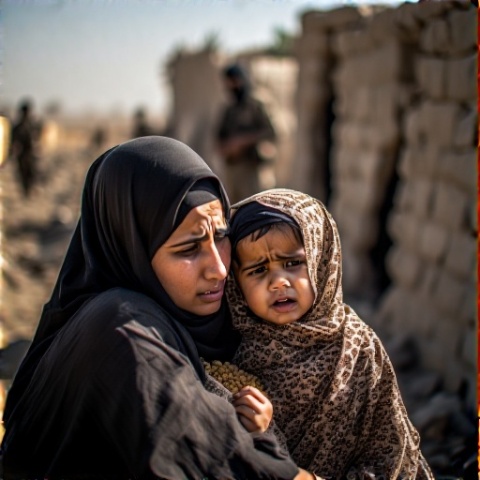Every soul will taste death. This universal reality, so often ignored in the rush of daily life, is at the very heart of Islamic teachings. The grave is not merely a resting place for the body, but the first station of the Hereafter—a realm where the realities of faith, deeds, and intentions are unveiled. Preparing for the grave is not a morbid obsession; it is a spiritual necessity, a reminder to align our lives with the purpose for which we were created.
The Grave in Islam: A Gateway, Not an End
The Prophet Muhammad (PBUH) taught that the grave is the first stage of the Hereafter. If one passes safely through it, the rest will be easier; if not, what follows will be even more severe (Tirmidhi, 2308). The Qur’an reminds:
“Every soul will taste death. And you will only be given your [full] compensation on the Day of Resurrection. So he who is drawn away from the Fire and admitted to Paradise has attained [his desire]. And what is the life of this world except the enjoyment of delusion.” (Qur’an 3:185)
This verse sets the tone: the grave is not the final destination, but the beginning of our eternal journey.
The Final Moments: From Death to Burial
The Departure of the Soul
At the moment of death, the soul is extracted from the body—gently for the righteous, painfully for the wicked. The Prophet (PBUH) described how angels descend, either with mercy or punishment, depending on the person’s faith and deeds (Sahih Muslim, 2872).
Islamic Burial Rites
Islamic funeral practices are designed to honour the deceased and remind the living of their own mortality. The body is washed, shrouded, and placed in the grave on its right side facing the Qiblah, as was the Sunnah of the Prophet (PBUH). Those present are encouraged to reflect on death and pray for the deceased, as the Prophet (PBUH) said, “Make dua for your brother, for he is now being questioned” (Abu Dawud, 3221).
The Grave’s Questions: Munkar and Nakir
The Interrogation
After burial, two angels—Munkar and Nakir—visit the deceased to ask three fundamental questions:
- Who is your Lord?
- What is your religion?
- Who is your Prophet?
The Prophet (PBUH) said, “When a person is placed in his grave and his companions leave, he hears their footsteps. Two angels come to him, make him sit, and ask: ‘Who is your Lord?’ He says, ‘My Lord is Allah.’ They ask, ‘What is your religion?’ He says, ‘My religion is Islam.’ They ask, ‘Who is this man who was sent among you?’ He says, ‘He is the Messenger of Allah.’” (Sahih Bukhari, 1338; Sahih Muslim, 2870)
For the believer, these answers come easily. For the disbeliever or hypocrite, confusion and terror prevail. The Prophet (PBUH) described how the disbeliever will say, “I do not know,” and will be struck with a hammer, causing a scream heard by all but humans and jinn (Sahih Bukhari, 1374).
The Grave’s Calls: Reminders and Warnings
The Grave Speaks
The Prophet Muhammad (PBUH) taught that the grave calls out to every human: “I am the house of solitude, the house of dust, the house of worms. If a servant is righteous, it will say: ‘Welcome, you were beloved to me when you walked upon me, and now you are handed over to me. You will see what I have prepared for you.’ If he is not righteous, it will say: ‘You were the most hated to me when you walked upon me, and now you are handed over to me. You will see what I have prepared for you.’” (Ibn Majah, 4267)
Talqin: The Final Reminder
Before the grave is closed, it is Sunnah to recite the Talqin—a reminder to the deceased of the answers to the grave’s questions, reinforcing faith at the critical moment. The Talqin is a mercy for the deceased and a reminder for the living.
The Grave’s Blessings: Gardens Beneath the Earth
The Believer’s Reward
For the righteous, the grave expands and becomes a garden from the gardens of Paradise. The Prophet (PBUH) said, “When a believer is placed in his grave, it is made spacious for him as far as the eye can see. A window is opened for him to Paradise, and he smells its fragrance and feels its breeze.” (Sahih Bukhari, 1379; Sahih Muslim, 2870)
The grave becomes a place of peace, light, and comfort. The soul is shown its place in Paradise and waits in anticipation for the Day of Resurrection.
Protection from Punishment
Certain deeds protect from the torment of the grave. Reciting Surah Al-Mulk every night is one such deed, as the Prophet (PBUH) said, “There is a surah in the Qur’an of thirty verses which intercedes for a man until he is forgiven. It is Surah Tabarak (Al-Mulk).” (Tirmidhi, 2891)
The Grave’s Curses: Darkness and Constriction
The Hypocrite’s Plight
For the disbeliever or hypocrite, the grave becomes a pit of torment. The Prophet (PBUH) described, “If he is a bad person, it (the grave) will say: ‘You were the most hated to me when you walked upon me, and now you are handed over to me. You will see what I have prepared for you.’ Then it will close in on him until his ribs interlock.” (Tirmidhi, 2460)
A window to Hell is opened, and the soul is shown its place in the Fire, suffering from its heat and stench until the Day of Judgement.
The Sins That Bring Punishment
The Prophet (PBUH) warned that neglecting prayer, backbiting, slander, and impurity after relieving oneself are among the main causes of grave punishment (Sahih Bukhari, 218; Sahih Muslim, 292). He once passed by two graves and said, “They are being punished, but not for something difficult to avoid. One of them did not protect himself from urine, and the other used to spread gossip.” (Sahih Bukhari, 216; Sahih Muslim, 292)
The Horrific Punishments: Scenes from the Barzakh
The Torments Described
The Prophet (PBUH) described the punishments of the grave in vivid detail. In a long hadith, he saw people being punished for various sins: one whose head was smashed with a rock for neglecting the Qur’an, another dragged through burning stones for lying, and others torn apart for adultery (Sahih Bukhari, 7047).
He (PBUH) said, “Seek refuge with Allah from the punishment of the grave” (Sahih Bukhari, 1377; Sahih Muslim, 588). This was part of his regular supplications.
The Loneliness and Darkness
The grave is a place of solitude and darkness for the sinful. The Prophet (PBUH) said, “The grave has darkness, but if Allah wills, He will illuminate it for the believer.” (Ahmad, 6/55)
Reader Questions: Common Concerns About the Grave
1. What are the questions asked in the grave, and how can I prepare for them?
The three questions are about your Lord, your religion, and your Prophet. Preparation is through sincere faith, regular worship, and living according to the Sunnah.
2. Can the dead hear us when we visit their graves?
The Prophet (PBUH) said, “When a person is placed in his grave and his companions leave, he hears their footsteps” (Sahih Bukhari, 1338).
3. What deeds protect from the punishment of the grave?
Regular prayer, charity, recitation of Surah Al-Mulk, and avoiding major sins are all means of protection.
4. Is punishment in the grave temporary or permanent?
It depends on the person’s deeds. For some, it is a purification before the Day of Judgement; for others, it is a prelude to greater torment.
5. Can we benefit our loved ones after their death?
Yes, through dua, charity, and righteous deeds on their behalf, as the Prophet (PBUH) said, “When a person dies, his deeds end except three: ongoing charity, beneficial knowledge, or a righteous child who prays for him.” (Sahih Muslim, 1631)
Preparing for the Grave Today
In an age of distraction and materialism, the reality of the grave is often forgotten. Yet, death is the only certainty. Preparing for the grave means living a life of purpose, repentance, and gratitude. It means making amends, seeking forgiveness, and striving for sincerity in every action.
Practical steps include:
- Regular remembrance of death (dhikr al-mawt)
- Attending funerals and visiting graves for reflection
- Reciting Surah Al-Mulk at night
- Maintaining purity and honesty in all dealings
- Sincere repentance and seeking forgiveness daily
The Grave—A Test, a Mercy, and a Reminder
The grave is the first step of the Hereafter. For some, it is a garden of peace; for others, a pit of torment. Its questions, calls, blessings, and punishments are not distant myths but realities affirmed by the Qur’an and Sunnah. The wise prepare for the grave not by fearing death, but by living a life of faith, good deeds, and repentance.
“O Allah, I seek refuge in You from the punishment of the grave.” (Sahih Muslim, 588)
Let us live each day as if it is our last, preparing for the moment when we will be alone in our graves, facing the consequences of our choices. May Allah grant us steadfastness, forgive our shortcomings, and make our graves gardens from the gardens of Paradise. Aameen.






